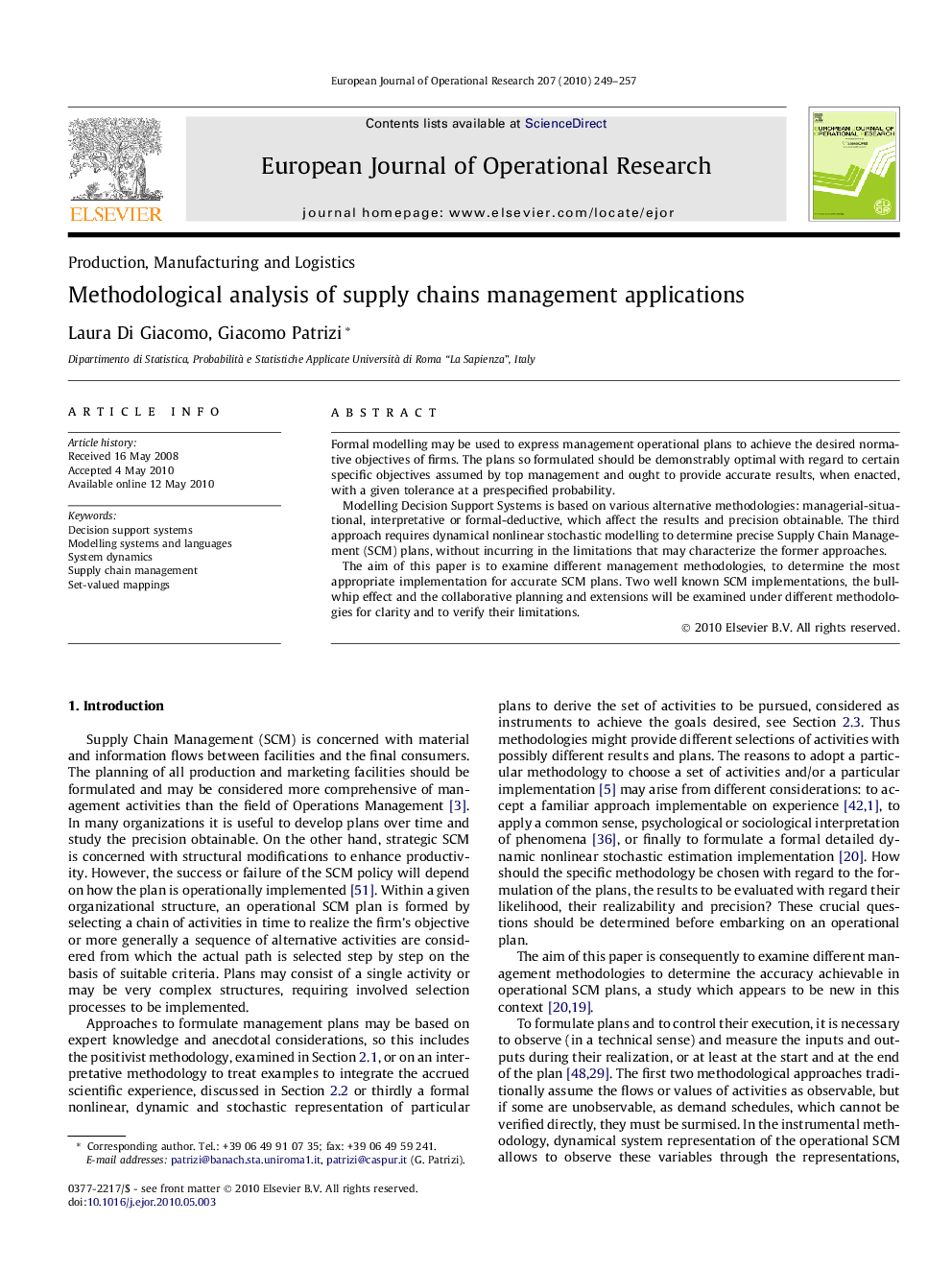| Article ID | Journal | Published Year | Pages | File Type |
|---|---|---|---|---|
| 481083 | European Journal of Operational Research | 2010 | 9 Pages |
Formal modelling may be used to express management operational plans to achieve the desired normative objectives of firms. The plans so formulated should be demonstrably optimal with regard to certain specific objectives assumed by top management and ought to provide accurate results, when enacted, with a given tolerance at a prespecified probability.Modelling Decision Support Systems is based on various alternative methodologies: managerial-situational, interpretative or formal-deductive, which affect the results and precision obtainable. The third approach requires dynamical nonlinear stochastic modelling to determine precise Supply Chain Management (SCM) plans, without incurring in the limitations that may characterize the former approaches.The aim of this paper is to examine different management methodologies, to determine the most appropriate implementation for accurate SCM plans. Two well known SCM implementations, the bullwhip effect and the collaborative planning and extensions will be examined under different methodologies for clarity and to verify their limitations.
